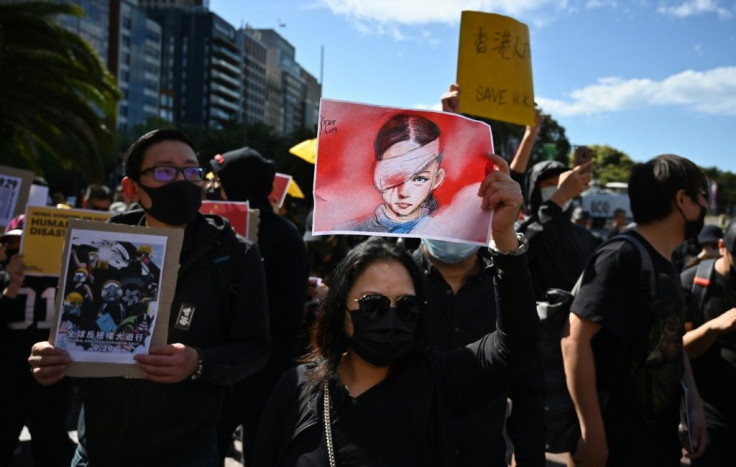China Lays Bare Australia 'Hypocrisy' On National Security Test For Hong Kong Immigrants
KEY POINTS
- Australia announced Hong Kong passport holders will have to pass a character test and a national security test to become permanent residents
- Chinese Communist government called it “undisguised hypocrisy and blatant double standards”
- The Australian testing requirements were announced by acting Immigration Minister Alan Tudge
Australia’s requirement that Hong Kong passport holders in the country pass a character test and a national security test before becoming permanent residents is causing an uproar in Beijing. The Chinese Communist government called it “undisguised hypocrisy and blatant double standards” because Australia opposed Hong Kong’s new security laws.
The Australian testing requirements were announced by acting Immigration Minister Alan Tudge who told the ABC Insiders program on Sunday, July 12, that 10,000 Hong Kong passport holders would only get permanent residency if they passed the tests. "If there's a serious security issue in relation to that person, they'll be sent back," Tudge said.
In response to Australia's decision, Hua Chunying, a spokesperson for China’s Ministry of Foreign Affairs, said, “On the one hand, it (the Australian government) opposes the Hong Kong related national security legislation. On the other, it requires Hong Kong residents coming to Australia to pass Australia’s national security test. The Australian side’s undisguised hypocrisy and blatant double standards are really eye-opening,” at a press conference.
China and Australia have been at odds in recent months over various issues. Prime Minister Scott Morrison recently upgraded travel warnings for Australians in mainland China and Hong Kong. He also joined the list of countries calling for an investigation into China’s handling of the coronavirus pandemic that first emerged in Wuhan. Beijing accused Australia of racial bias against Asian students.
Chen Hong, the director of the Australian Studies Centre at East China Normal University in Shanghai, explained Beijing’s concerns about the Australian tests while speaking to the Chinese state-run Global Times. He said any security checks for Hongkongers applying for permanent residency in Australia would include their links with mainland China which could “sound the alarm to (Australian) authorities”.
China seems to be ignoring the global sentiment against the new National Security Laws for Hong Kong that have been in place since June 30. Concerns over the law prompted Scott Morrison to suspend the extradition treaty between Australia and Hong Kong, making it easier for passport holders, including students and skilled visa holders, to get permanent residency. This would draw more Hong Kong businesses to Australia.
Tudge said Hong Kong’s new national security laws changed the situation in the city. “That means many Hong Kong passport holders may be looking for other destinations to go. That is why we have put forward our additional visa options for them.”
Two comments demonstrated China’s position that they consider Hong Kong to be part of the country under Chinese sovereignty currently under the “one country two systems” formula. “The Australian side, with its latest move, ignores the basic fact that the Hong Kong related national security legislation is conducive to the steady and sustained implementation of ‘one country, two systems’," Hua said during a press conference.
In the Global Times article, Chen said, "It's plain to any eye that there is no humanitarian crisis in Hong Kong, but Australia's Liberal-National Coalition government is politicizing and weaponizing its refugee policy to alienate the people of Hong Kong from the Chinese mainland, and to stir up more hostility instead of promoting stability."

© Copyright IBTimes 2024. All rights reserved.





















